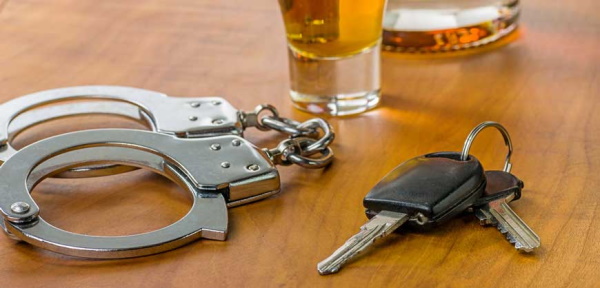There are various ways to argue your case if you’ve been charged with driving under the influence. In particular cases and if the circumstances permit, if you’ve been charged with a DUI, there is a possibility that you were forcibly compelled to commit a crime. This strategy is referred to as the affirmative defense of duress/coercion. If that’s the case, you should contact our Asheville DUI attorneys right away.
Components of the Duress Defense
When arguing a duress defense, you are trying to convince the jury that external circumstances put you in a position of death or bodily harm unless you took criminal action. The threat of violence is the usual catalyst, however, there are other potential factors that can be considered appropriate to commit a criminal act.
While the burden of proof falls on the prosecutor to establish your guilt, the defense of duress is the defendant’s burden to prove.
North Carolina juries are instructed to adhere to the defense of duress per the law as stated:
“There is evidence in this case tending to show that the defendant acted only because of [compulsion] [duress] [coercion]. The burden of proving [compulsion] [duress] [coercion] is upon the defendant. It need not be proved beyond a reasonable doubt, but only to your satisfaction. The defendant would not be guilty of this crime if his actions were caused by a reasonable fear that he (or another) would suffer immediate death or serious bodily injury if he did not commit the crime. His assertion of [compulsion] [duress] [coercion] is a denial that he committed any crime. The burden remains on the State to prove the defendant’s guilt beyond a reasonable doubt.”
By proving to the jury’s satisfaction that your actions prevented you or another from death or bodily harm, then you’re deeming that whatever actions you took were not criminal.
One critical aspect of proving the defense of duress is that reasonable fear is what compelled you to take action despite the legality of the action, however, it does not require you to prove that a criminal act was your only recourse.
For example, if an attacker is chasing you while you’re intoxicated, you don’t have to disprove that fleeing on foot would be a viable alternative. You only need to prove that a reasonable amount of fear existed to fear physical harm, and a vehicle was available to alleviate the situation.
Is a Duress Defense the same as the Necessity Defense
The duress defense and the necessity defense run several parallels, however, in North Carolina, are given distinct classification.
The elements that structure a defense due to coercion or duress and a defense situated around the necessity defense need to be evaluated separately. The jury instruction is also separate and distinct between the two arguments.
In brief, the necessity defense states that a defendant must prove:
- They acted in a manner to avoid significant risk or harm
- They did not have the means to act lawfully to escape the threat of harm
- The illegal actions taken to prevent injury exceeds the damage that could have passed
Duration of the Duress Defense
Speaking specifically of committing a DUI offense, it’s difficult to actually pinpoint that fleeing in duress ends and driving while intoxicated begins. If feeling from a pedestrian attacker, it’s been established (State v. Cooke, 94 N.C. App. 386, 387, 380 S.E.2d 382, 382 (1989)) that driving away for half an hour is more than sufficient to evade bodily harm. However, it has also been argued that without proper testimony, it is difficult to establish at what point the DUI offender should have stopped driving and sought help.
Burden of Proof for the Duress Defense
While the prosecutor has to prove beyond a reasonable doubt that you were driving while intoxicated, if you’re establishing a duress defense, it is up to you to prove reasonable fear of bodily harm to the jury. The difference is that, unlike the prosecutor, you don’t need to prove duress beyond a reasonable doubt, you need only prove it to the jury’s satisfaction.
Notice of Duress Defense
If you’ve been charged as a habitually impaired driver, due to multiple DUI convictions, or if you’ve been charged with a felony because your actions resulted in death, then you may be required to give notice of the defense of duress to the Superior Court.
A DUI can be a life-altering event, however, you are not without options. Before thinking about taking on the courts alone, make sure to discuss your case with an experienced Asheville DUI defense lawyer. They will help you know all of your options before presenting your case in court. Call Asheville DUI today at 828-759-5556 or fill out our confidential contact form and will make sure you have a solid defense in place.




